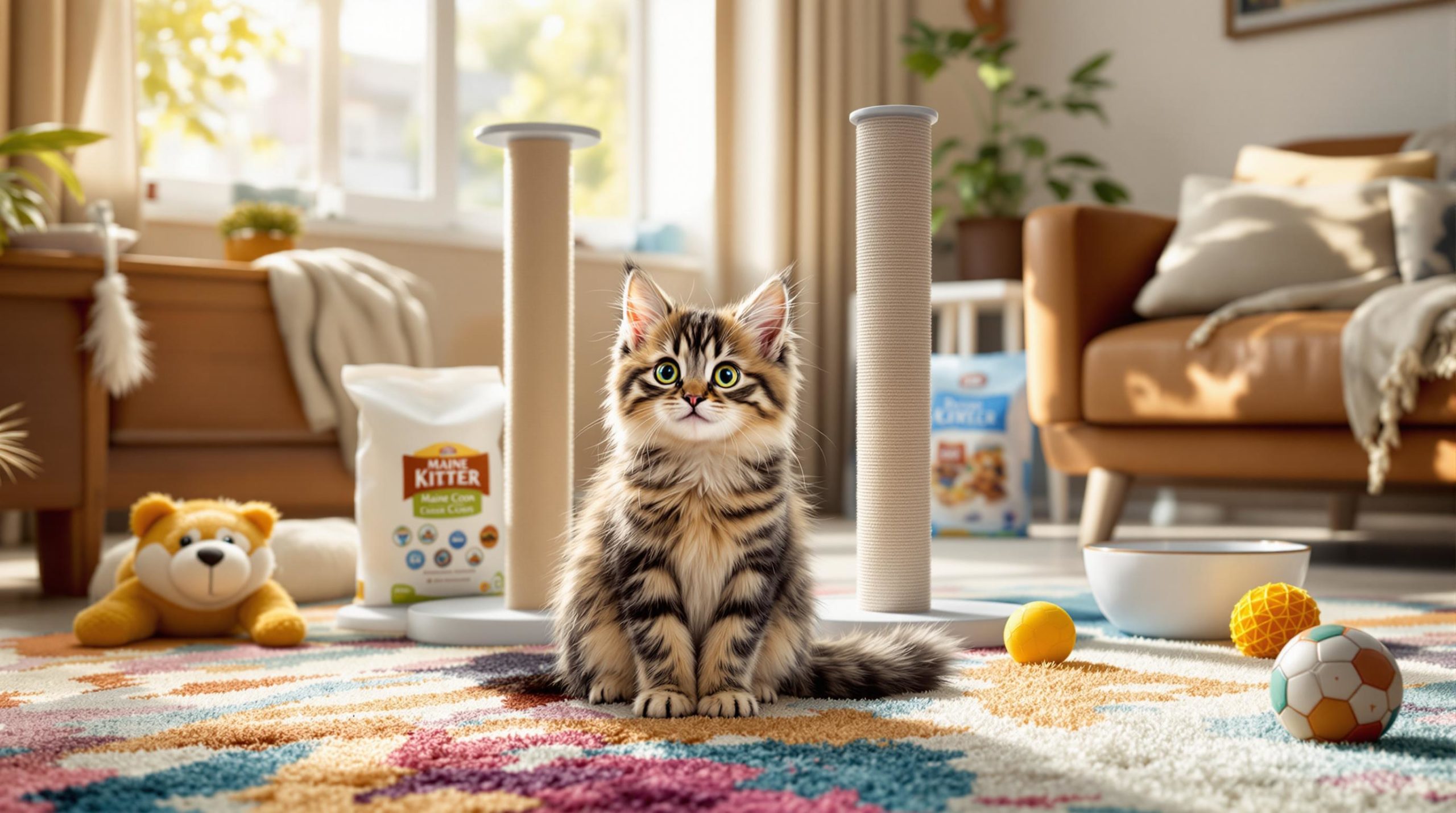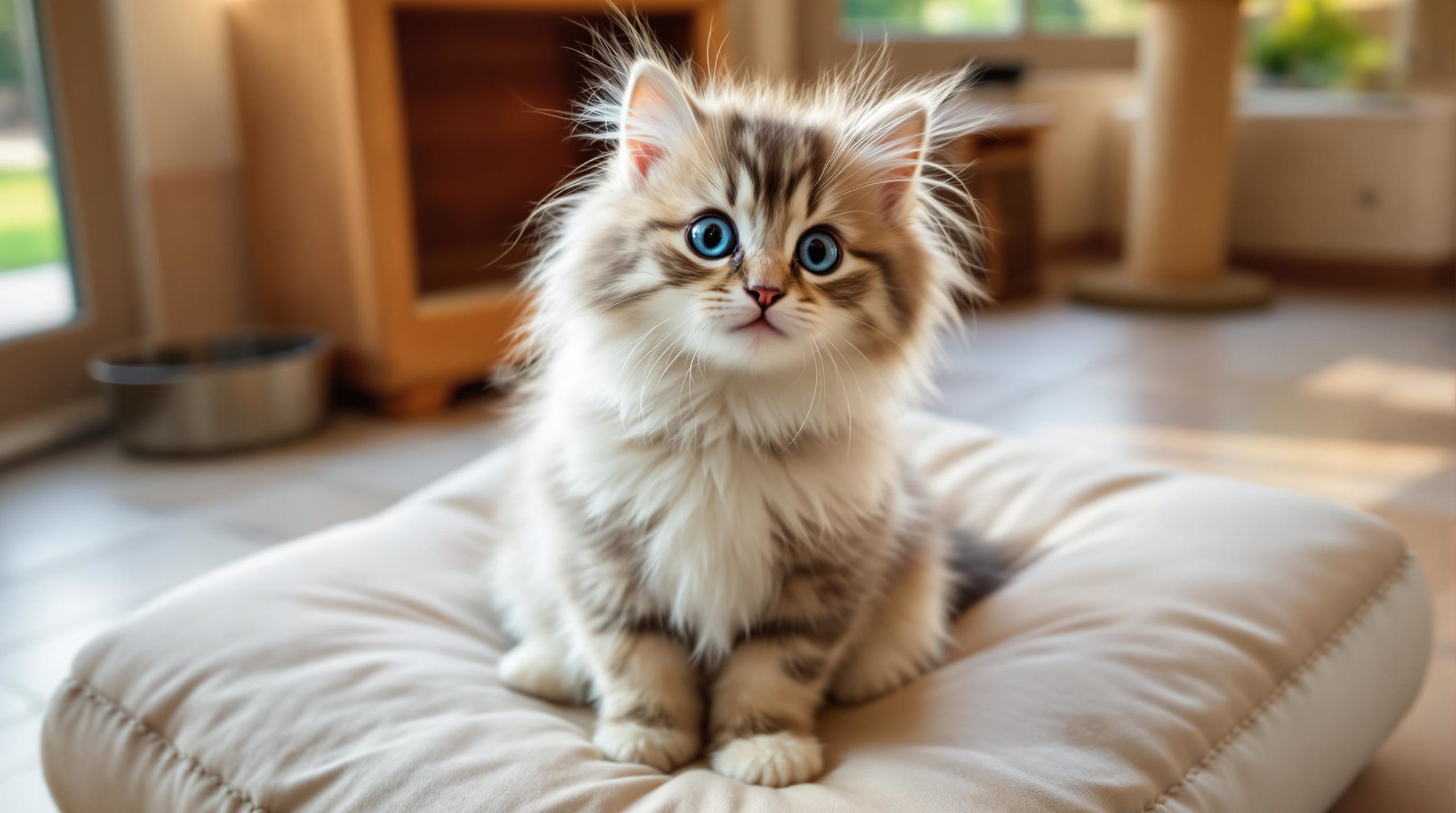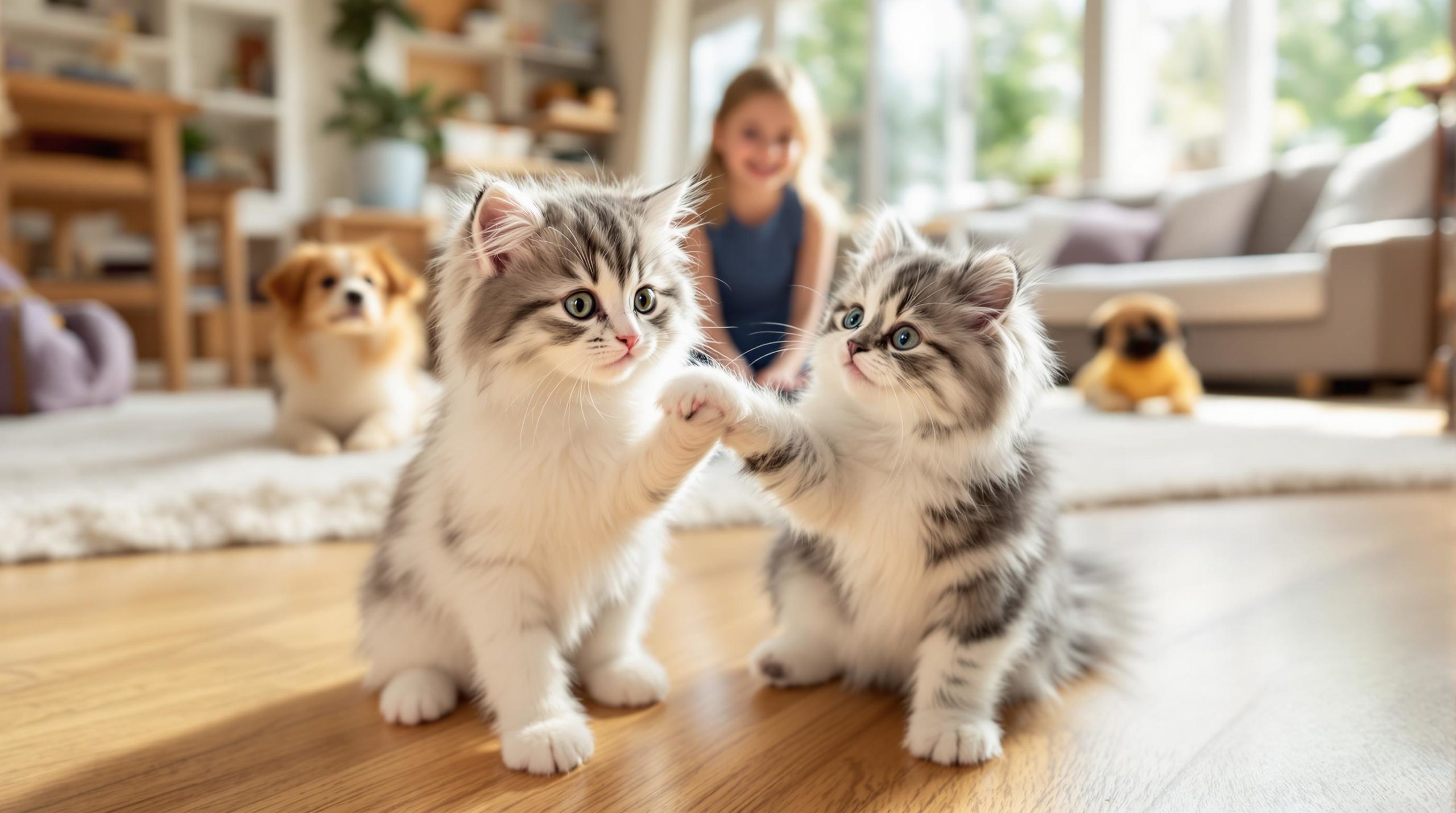essential questions to consider before adopting a Maine Coon kitten

Considering a Maine Coon kitten adoption invites excitement and planning in equal measure. These majestic felines are more than just giant fluffballs—they are companions requiring thoughtful investment and commitment. Understanding the nuances behind their breeding, health, behavior, and care can save future owners from unexpected challenges and cultivate a lifelong, joyful bond. This guide walks through the essential questions any prospective Maine Coon guardian should ask before bringing a kitten home, ensuring a smooth start for both kitten and owner.
Key Breeder Credentials and Kitten Lineage for Responsible Maine Coon Kitten Adoption
Choosing a reputable breeder is the cornerstone of securing a healthy and well-socialized Maine Coon kitten. Affiliation with respected cat associations reveals much about a breeder’s practices. Breeders registered with organizations like The International Cat Association (TICA), the Cat Fanciers’ Association (CFA), or the Governing Council of the Cat Fancy (GCCF) generally adhere to strict ethical breeding and health standards.
Verifying pedigree papers is a non-negotiable step to confirm a kitten’s purebred status. Pedigree documentation traces the lineage, offering insights into inherited traits and potential genetic risks. This is particularly crucial for Maine Coons, a breed with distinctive features and predispositions. Without these papers, identifying an authentic Maine Coon kitten requires expert knowledge.
Requests to meet the kitten’s parents help prospective owners gauge temperament and physical condition firsthand. Seeing healthy, socialized parents in a clean environment often reflects the breeder’s dedication to quality care and upbringing.
- Always inquire if the breeder is registered with TICA, CFA, or GCCF.
- Request authenticated pedigree papers for the kitten.
- Visit or ask for a virtual tour to inspect the cattery’s environment.
- Meet the kitten’s parents to assess typical behaviors and health.
| Breeder Credential | Significance | Typical Requirements |
|---|---|---|
| TICA Registration | Shows adherence to ethical breeding and health screening | Health tests, pedigree verification, cattery inspections |
| CFA Affiliation | Ensures breed standards and transparency | Regular health checks, show participation encouraged |
| GCCF Membership | UK-based registry promoting breed purity and welfare | Strict breeding protocols, mandatory documentation |

Responsible breeders also maintain waiting lists, signaling demand and their commitment to proper kitten placement rather than rushed sales. While it requires patience, acquiring a kitten this way increases the odds of a happy, healthy adoption.
Understanding Maine Coon Health Testing and Guarantees: Protecting Your Investment in Pet Care
Maine Coons, despite their robust nature, can be susceptible to specific genetic health concerns. Asking about health testing for both parents is essential to managing long-term feline health and wellness. The major conditions to inquire about include:
- Hypertrophic Cardiomyopathy (HCM): A common feline heart disease. Breeders committed to quality perform echocardiograms to screen for HCM before breeding.
- Hip Dysplasia: Due to their extraordinary size, Maine Coons can develop this joint condition, so breeders should evaluate hip scores.
- Spinal Muscular Atrophy (SMA): A genetic disorder impairing muscle function – parents should be tested negative.
Besides health tests, legitimate breeders provide written health guarantees that cover genetic diseases for at least 12 months. This contract reassures you not only about the kitten’s current health but also about the breeder’s confidence in their practices.
Regular veterinary interaction starting from kittenhood is crucial. Confirm that the kitten is vaccinated according to age and microchipped, complying with legal requirements in your jurisdiction. Deworming and flea treatments are other vital health care pillars. Always request documentation of these procedures to track your kitten’s care history seamlessly.
| Health Aspect | Why It Matters | Owner’s Checklist |
|---|---|---|
| Hypertrophic Cardiomyopathy (HCM) | Can cause sudden heart failure – early detection is key | Ask for echocardiogram results of parents |
| Hip Dysplasia | Leads to joint pain and mobility issues | Request hip score evaluations |
| Spinal Muscular Atrophy (SMA) | Affects muscles, leading to weakness | Verify free status from genetic test reports |
| Vaccinations & Microchipping | Protects against common diseases and aids ID | Ensure all records up to date before adoption |
For owners exploring pet insurance options, understanding potential risks helps select suitable coverage. Partner with veterinary services specializing in feline health to keep preventive care on track after adoption.
Kitten Socialization and Behavioral Preparation: Keys to a Well-Adjusted Maine Coon Companion
Early socialization is more than just cuddles and playtime; it’s the foundation for a friendly, confident Maine Coon. Kittens exposed to varied stimuli during their critical developmental windows adapt better to household noises, different people—including children—and other animals.
Ask your breeder:
- How are kittens introduced to human interaction? Are they handled daily?
- Are they accustomed to typical home sounds like vacuums, televisions, and voices?
- Have they met other pets, especially if you have dogs or smaller animals?
Another vital detail is the kitten’s age before adoption. Ideally, kittens stay with their mother and littermates to at least 12 weeks. This period fosters emotional regulation, play skills, and litter training.
Some breeders neuter or spay kittens before leaving or include contracts mandating these procedures at a specific age. Clarifying these policies prevents surprises and aligns expectations on pet training and care routines.
| Early Socialization Focus | Benefits | How Owners Can Support |
|---|---|---|
| Daily Handling | Builds trust and reduces fearfulness | Continue gentle handling in new home |
| Exposure to Household Noise | Prevents noise anxieties | Simulate gradual noise introduction |
| Interaction with Other Animals | Improves social adaptability | Introduce pets carefully and supervised |
| Litter and Grooming Training | Encourages good habits early | Maintain routines and use appropriate grooming supplies |

Investing attention in socialization aligns with the Maine Coon’s affectionate and playful nature. Using varied cat toys also stimulates their intelligence and helps redirect energy positively, important for a breed known for being lively and social.
Navigating Practical Care and Environmental Needs for Maine Coon Kitten Adoption Success
Owning a Maine Coon means anticipating their size, dietary, and activity requirements to ensure well-being. These cats grow larger and more active than many other breeds, demanding high-quality cat food that supports joint health, muscular development, and a shiny coat.
Transitioning a new kitten onto your preferred diet should be gradual to avoid digestive upset. Inquiring about the kitten’s current diet—brands, wet or dry, feeding schedules—helps smooth this process.
Grooming is another essential aspect. Maine Coons’ dense fur requires regular brushing, which reduces matting and hairballs. Stocking up on grooming supplies like wide-tooth combs, slicker brushes, and nail clippers prepares owners for routine maintenance.
Additionally, environmental enrichment through stable play areas, scratching posts, and cozy sleeping spots complements their intelligence and energetic spirit.
- Choose species-appropriate high-protein cat food with joint-support nutrients.
- Establish a regular grooming routine to prevent mats and skin issues.
- Invest in interactive cat toys and safe climbing furniture.
- Consider pet insurance to mitigate unexpected veterinary expenses.
| Care Component | Owner Duties | Potential Issues if Neglected |
|---|---|---|
| Nutrition | Feed balanced diet, monitor eating habits | Obesity, digestive problems, poor coat quality |
| Grooming | Brush regularly, trim nails | Matting, skin infections, stressed cat |
| Environmental Enrichment | Offer toys and climbing areas | Boredom, destructive behavior |
| Health Management | Schedule vet visits, manage parasite control | Unaddressed illnesses, parasite infestations |
Owners looking for detailed guidance on Maine Coon maintenance can benefit from specialized resources, such as comprehensive ownership guides, that cover everything from nutritional advice to the best veterinary services for this breed.
Legal, Financial, and Long-Term Commitment Considerations Before Maine Coon Kitten Adoption
Bringing a Maine Coon kitten into your home involves more than affection—it’s a serious legal and financial responsibility stretching over the cat’s lifetime. Prospective owners must understand the legislative nuances, such as microchipping regulations varying widely by state or country. For instance, mandatory cat microchipping is rolling out in places like Las Vegas and Indiana from 2024 onwards.
The initial investment includes the kitten’s purchase price, which varies depending on the breeder’s reputation, pedigree, and location. Beware of suspiciously low prices—a possible red flag for scams or irresponsible breeding. For a thorough cost breakdown including health testing and long-term expenses, see this 2025 Maine Coon cost guide.
Contracts are a must-have in ethical adoptions. They often clarify:
- Return policies if ownership circumstances change
- Spay/neuter agreements
- Health guarantees and post-adoption support
Long-term, expect your Maine Coon to need dedicated pet care, occasional veterinary visits, social interaction, and engagement with play and training. When selecting a breeder, check for transparent testimonials and inquire whether they show their cats, which often translates to maintained breed standards.
| Consideration | Details | Owner Action |
|---|---|---|
| Legal Requirements | Microchipping mandates vary by location | Confirm local laws, ensure compliance |
| Purchase Price | Reflects breeder quality, health screening included | Research market rates, avoid low-ball offers |
| Contracts | Sets clear ownership terms | Carefully review and clarify clauses |
| Long-Term Care | Ongoing vet visits, nutrition, and social needs | Plan time and budget accordingly |
Detailed legal aspects of owning Maine Coons can be explored further at mainecoonlife.com, enabling confident and lawful pet stewardship. Meanwhile, responsible pet training and suitable pet insurance help mitigate risks and safeguard the bond you build with your new companion.
Frequently Asked Questions About Maine Coon Kitten Adoption
- What is the ideal age to bring home a Maine Coon kitten?
Ideally, kittens should stay with their mother and littermates until at least 12 weeks old to ensure proper social and emotional development. - How can I verify that my Maine Coon kitten is purebred?
Request pedigree papers and confirm breeder affiliation with reputable registries such as TICA or CFA. Meeting the parents and seeing documentation helps authenticate lineage. - Are Maine Coons hypoallergenic?
While no cat is truly hypoallergenic, some Maine Coons may produce fewer allergens. For more detail, visit mainecoonlife.com’s hypoallergenic Maine Coon guide. - What should I expect regarding their grooming needs?
Maine Coons require regular brushing to prevent matting and skin problems. Early training on grooming routines aids long-term maintenance. - Is pet insurance necessary for Maine Coons?
Given their size and predisposition to certain health issues, pet insurance offers valuable financial protection and access to timely veterinary services.